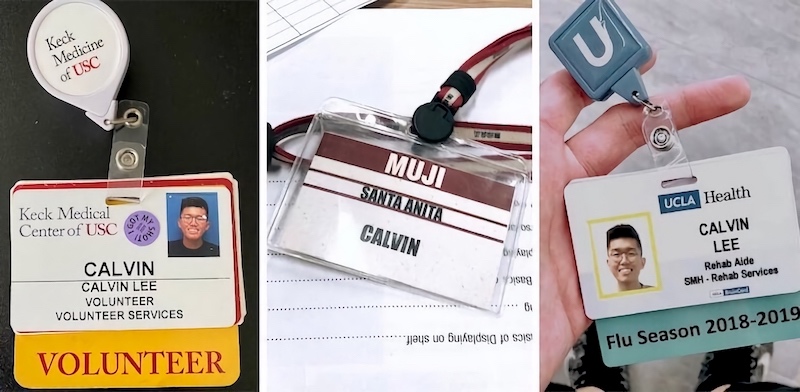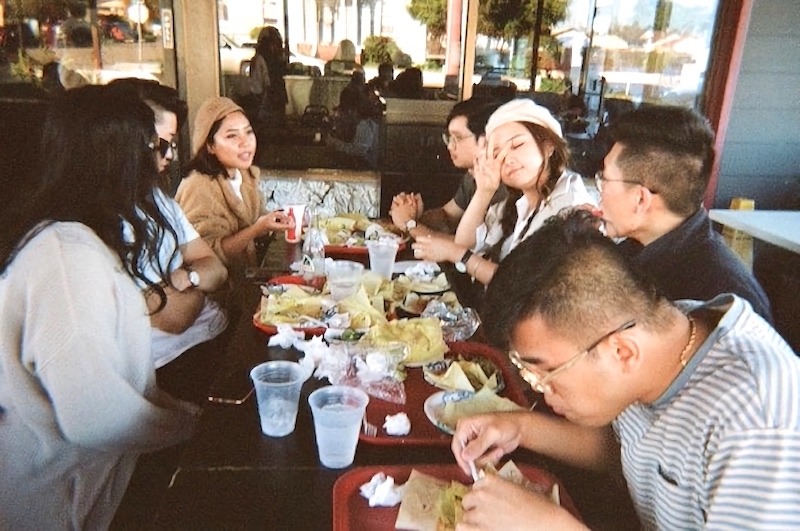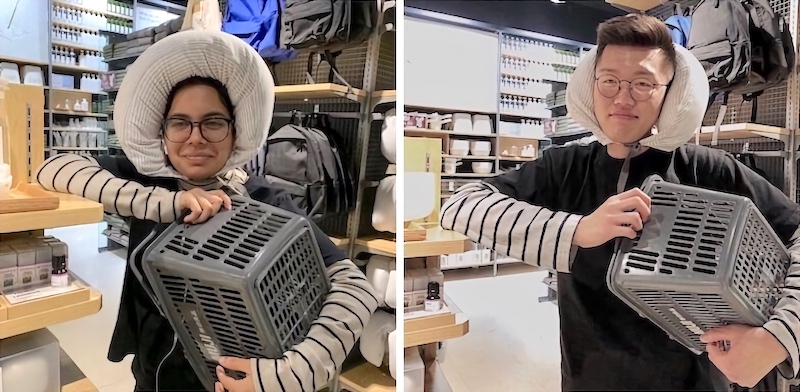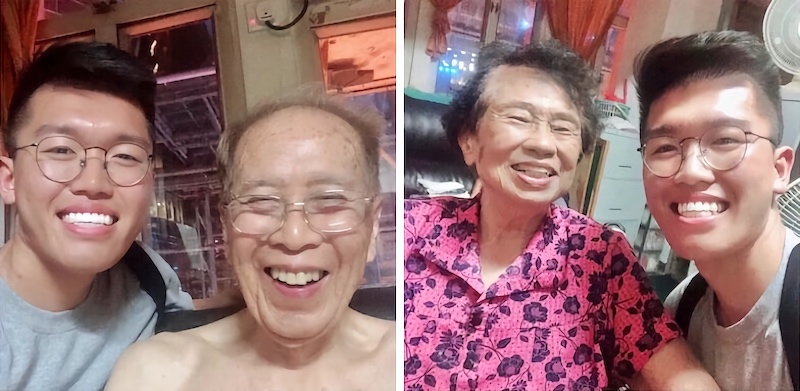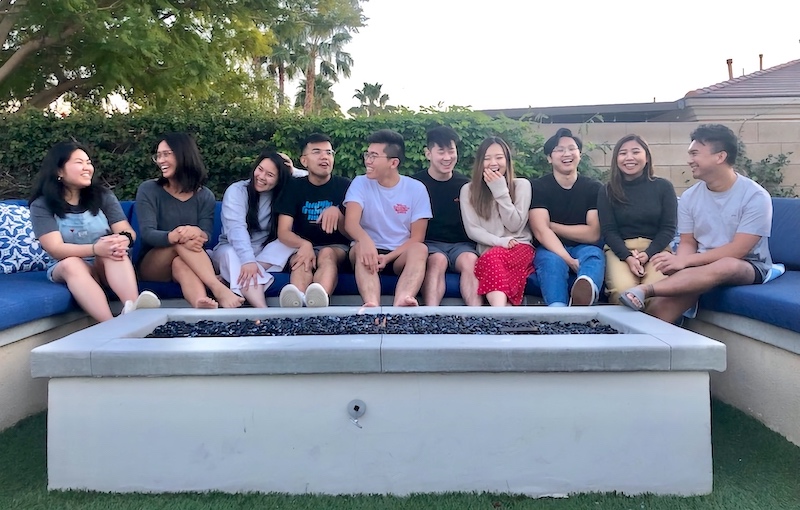Student Blog
Life Hacks
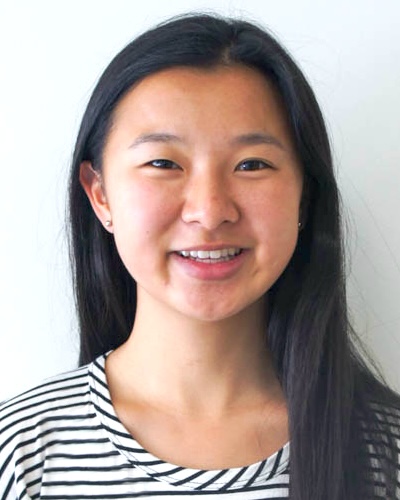
Welcome to the Waiting ⟩
February 3, 2021, by Bethany
Admissions Life Hacks
Hello to all of our undergraduate applicants who have now reached the Waiting: that awkward time in between application submission and decision where the choice is out of your hands. All admissions processes, whether for undergrad or graduate school, have that awkward, breath-holding Waiting. You’ve spent months trying to paint the perfect picture of yourself for each counselor that reads your personal statement. You’ve looked at schools and maybe you have that one ideal school in mind. You’ve hit the submit button. And now what? Whatever thoughts or expectations we have about our future education, we all at some point get stuck in the Waiting. So as you’re sitting trying to picture what the next four years of your life may look like, here are a few tips to remember.
- Breathe — With applications in, breathe in. Now, breathe out. You did it! You submitted! Good job! You’ve done your part, and now look at all this new time that you have gained! Take a breath and bake cookies or go for a night drive. Go back to your favorite activities, or find a new one. Or you can always spend more time studying for all those AP classes that you decided to take senior year . . .
- Celebrate — You have done your best, written your best, and put on your best show. Take time to eat some ice cream, since it’s hitting 80 degrees here in LA, or drink hot chocolate and watch a movie.
- Commiserate — Remember that other students are also waiting! Find your other friends who are in the same boat. Wait together, and rant together, if you need to. Remember that wherever you are in this journey, you’re not alone.
- Ask — If you still have questions about the college experience, use the time to reach out! Email me at .(JavaScript must be enabled to view this email address) if you want to ask me questions about OT undergrad life. Take an undergraduate virtual tour. Stay updated on the undergraduate Admission Blog to learn more about the “Now what?”
- Be present — The phrase “be present” is used frequently among my friend group. But it always takes a moment for the real meaning of the phrase to sink in. As you go throughout your day, be present in the moment. Yes, you can think about your future, but don’t let those worries take away from what you’re living right now. Make some good memories. Now is as good a time as any.
So. Welcome to the Waiting. Just remember, the Waiting doesn’t last forever. Your path may end up looking different than you expected. But know that somehow, someway, you’ll end up where you need to be.
⋯

Advice for Incoming Occupational Therapy Students ⟩
January 21, 2021, by Savi
Classes Fieldwork Getting Involved Life Hacks
Before beginning my journey as a student in the Entry-Level Master’s program, I remember being extremely overwhelmed. I, therefore, wanted to dedicate this blog to giving incoming students some advice I wish I would’ve known. To those who will be receiving their acceptance letters soon . . . congratulations on this huge achievement! I hope you keep these pieces of advice with you throughout your time at USC.
- A’s aren’t everything. Although it may be ingrained in you that grades are what measure your level of success, you must now focus more on the learning process instead of the grade outcome. The deciding factor for whether you will get hired over another candidate is your ability to be personable, your experience in the field, and the skills you are equipped with. You made it here, so now you can breathe and just focus on passing and learning all that you can! I speak more about this in my blog An A+ Doesn’t Define You, so be sure to visit this blog for more information.
- Lean on your classmates. This master’s program is not a competition so do not try to make it one. Your fellow classmates are most likely struggling with the same or similar things as you, so reach out to them and be honest. You will find that developing a study group can be VERY beneficial for your mental wellbeing as well as your ability to retain information. By saying things out loud, explaining a concept to a classmate, or hearing your classmate explain a concept to you in their own words, you will find yourself memorizing everything you need or want to know without having to study alone. This is also good practice for the clinical setting as you will be required to work with a variety of colleagues who have different strengths and weaknesses than your own. You can learn how to not only work together but also uplift each other. Build that foundation of support so that studying becomes easier and your coursework has more meaning.
- Take all the time you need to decide what organizations you want to join. Time is valuable in this program and you must make the most of it. Although it may be tempting, try not to join every single organization that you may be slightly interested in. Take your time learning about each opportunity and commit yourself to one or two. Throughout your two years, a variety of opportunities will arise for you to take advantage of. For example, becoming an ambassador was an opportunity that presented itself at the end of my first year in the master’s program. You want to give yourself enough time to fully engage in the organizations you choose to join, while also leaving time for future opportunities that may become available later on. Pick things because you are passionate about them not because they will look good on a resume. To learn more about the student organization options check out my blog What Student Organization Should I Join?
- Get to know your professors. The faculty members in the Chan Division are unbelievable. Each professor or instructor you will have is passionate about a different topic. Learn and ask about their passions and their experience pursuing OT in their field of choice. Most of their journeys were not straightforward and many may surprise you. This is an incredible opportunity to learn from some of the most distinguished OTs in the world . . . so take advantage of it. Ask them questions both inside and outside of the classroom and build relationships with them. These professors can and will be your mentors for the rest of your life.
- Be open to any opportunity that may come your way. During your fieldwork I clinical experiences, you will get the chance to practice OT once a week in three different settings (mental health, pediatrics, and adult rehabilitation) throughout your two years in the master’s program. You will also have the chance to choose two of these settings to focus on for 12 weeks as a full-time fieldwork II student each summer. Although one or two of these settings may not be ones that you are extremely passionate about, you must take advantage of the learning opportunities you are given by the fieldwork team. Maybe the fieldwork placement will teach you how to deal with conflict, become an independent practitioner, listen more intently, or stay organized. You may even surprise yourself and fall in love with a practice setting you never expected to enjoy! Whether or not you can see yourself as a practicing OT in this setting, make sure to walk into each placement with an open mind and your best foot forward. If you do not do so, then you will not only waste your time but also the time and resources of the clinical setting that has allowed you to come and work with their patients. Instead, use these opportunities to build relationships with the practitioners around you and harness the skills needed to be successful in your future dream job.
- Schedule in time for revitalizing occupations. Whether these occupations are as exciting as going to the beach, hanging out with friends, or skateboarding, or as “simple” as showering and sleeping, be sure to find time for what makes you feel happy and more like yourself. You will not be able to succeed in this program unless you take care of yourself because you will quickly lose steam (take it from the girl who worked two jobs and barely slept for two semesters in a row). Your grades will begin to suffer but more importantly, your ability to retain important and valuable information, be present in class, and maintain your mental and physical health will most likely begin to deteriorate. If that means that you have to block off time in your schedule to shower, eat, go on a walk, or phone a friend to ensure that it is included in your daily routine . . . do it. You will thank me later!
⋯

Being Fine with Uncertainty ⟩
January 15, 2021, by Lamoni
Life Hacks
I am back and it is time for a new semester! Except I have no idea what I will be doing. Typically, we learn about our fieldwork placements at least one month before the start date. However, the pandemic has caused many changes. Several sites are delaying when they will take students, changing their format to telehealth, or they are not taking students at all. Already, our first level II fieldwork has moved from Summer 2020 to Spring 2021 but, as we all know, the virus has not slowed down. The fieldwork team has been working overtime but myself and nearly 30 other students still do not know when and where we will be. Any other time, I would be very anxious about the whole situation, but COVID-19 has taught me to take everything day by day. There are things that are out of my control therefore, I have no choice but to take a step back. *I want to acknowledge the privilege that I possess. I understand that my ability to not worry at a time like this means that I am in a very fortunate spot.
Being comfortable with the unknown did not happen overnight. Remember when we all thought COVID would be over in 3 weeks? I thought this would me a mini, much-needed break and that we would all return to school and work shortly. As time went on (long after 3 weeks), everything began to feel out of my grasp. I had no answers for anything. Now that we are less than 3 months short of it being a year and I do not have a placement, I have finally relinquished power and I have become more comfortable with not having an answer. To do that, I had to control other things in my life and be more intentional about them. For the things that were out of my hands, I had to create more things to hold on to. For example, I decided to read more books for leisure and to create a fitness routine. Within the past four weeks, I have already read three books. I have also gotten into such an exercise groove that I have to force myself to take days off. Additionally, I have been more intentional about checking on my friends and family. When I was busy with work, school, and research, I did not reach out often and I would take days to respond to their texts or calls. Now, I have more than enough time to build strong relationships and habits. Therefore, when I finally start fieldwork, these habits will be so engrained that I will keep them up.
Another way that I have learned to be more comfortable with my current situation is by putting it all into perspective. I am not dealing with this alone. The pandemic has changed the lives of everyone. If you are struggling with inconstancy and unpredictability, your mood is lower than usual, or your motivation has dropped, just know that others are having these feelings too. There is no “normal” way to feel because we have not experienced anything like this.
I typically like to create bullet points of tips and tricks but this time, my main advice would be to construct some sort of structure to your day and create small, attainable goals for yourself. The outdoors still has a big question mark on it but having a routine and something to work towards is important. Maybe your work or school goals cannot be accomplished at this time, but there are plenty of other ways to find fulfillment. We are often told to do our best but It is also okay to simply do what we can.
⋯

New Year Resolutions ⟩
January 13, 2021, by Bethany
Life Hacks
Welcome to 2021! We’ve reached a whole new year. Now is the time when people expect change, when people make resolutions to be their own new and improved selves. I wanted to give you some encouragements about making life changes:
Any time is a good time to start — Yes, it’s a new year and a symbol for new beginnings, but January 1st does not have to be the start date of the new you. Sometimes change happens gradually or unexpectedly. Sometimes it starts January 2nd instead, and sometimes it starts in July. And that is okay. For me, I wrote a blog a while ago about tracking my calories for an assignment, and I have been doing so ever since. It may not be January 1st, but October 21st is just as good a day to start a change.
Set attainable goals — I think setting attainable goals is an important skill as a future occupational therapist. We have to know how to give our clients and ourselves something to celebrate. Do the same when you’re making changes for yourself. Putting yourself through a long Chloe Ting challenge? Celebrate the fact that you made time for it just today. If you can’t do a month-long challenge, go for two weeks. But celebrate milestones in the process of change, not just the end goal!
Change can happen slowly — Unfortunately, with the start of 2021, we’ve seen how January 1st is not COVID’s expiration date, but at the same time, we know that vaccines are developed, we are all getting more used to wearing masks and keeping our community safe, and we’re on our way to getting back to “normal” safely. Something similar is true about our own change. We can’t expect ourselves to learn a new instrument in one day, but we can practice. Give yourself some time to learn the sound of the instrument and see how long it takes to change your tone, to build up the endurance to play for longer than three minutes at a time. (Hint: It’s okay if it feels like a long time.) Celebrate that you’ve stuck with it for so long, because sometimes gradual change is more exciting and surprising when you look at how far you’ve come.
This week, I started a new change. I have been placed at my first Level II Fieldwork site! For me, this is an opportunity to build my clinical reasoning skills, to learn to think like an OT as I practice being an OT. I’m excited to apply what we learn to real life. My first couple days have been long. I went from having a winter-break brain to working from 9 to 5! But I couldn’t be more excited. I’ve set my own goals/resolutions for fieldwork, and I hope to be able to make progress towards them over the next twelve weeks:
- Be okay with uncomfortable conversations
- Initiate a new project
- Make time for myself
Let’s work towards new goals together in this new year! We got this!
⋯
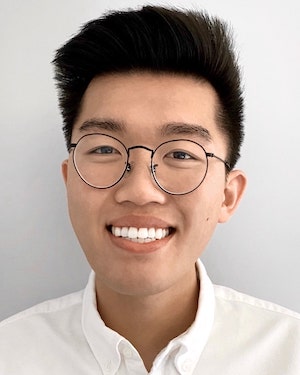
#NoRegrets ⟩
December 28, 2020, by Calvin
Admissions Getting Involved International Life Hacks Living in LA
Since OT school wasn’t an option for me right out of undergrad, I thought, “Well, I guess it’s time for plan B: to take a gap year.” Except, as time went by, it started to feel less like a back-up plan and more like the decision I should’ve gone with all along!
My gap year happened pretty unintentionally, but I’m honestly so glad that I took that time off. After 4 years of undergrad, I felt burnt out! A change of pace was something I needed and taking a year off to rest and try new things ended up serving me really well. It was because of my gap year that I was able to pursue research in another country, visit family and friends back in Hong Kong, travel around the world, build my professional experiences, study for the GRE, and just overall, take a break from school! Even though I wasn’t on vacation 24/7, my schedule definitely allowed for a lot more flexibility. I also want to emphasize that taking time off before heading to graduate school is completely normal. I might even suggest it because it gave me the time to reflect, mature, and refocus my goals.
I know what it’s like to feel the pressure of securing something for yourself after undergrad. I also know what it’s like when that doesn’t work out. Not knowing what’s going to happen next is a scary thing, but it’s also an opportunity to challenge ourselves and grow in ways that we might not have imagined before. So, do what you need to do before starting grad school, and know that you don’t need to jump into it right away. Take the time to think about what’s best for you and your future.
My Gap Year Memories in Photos
⋯






